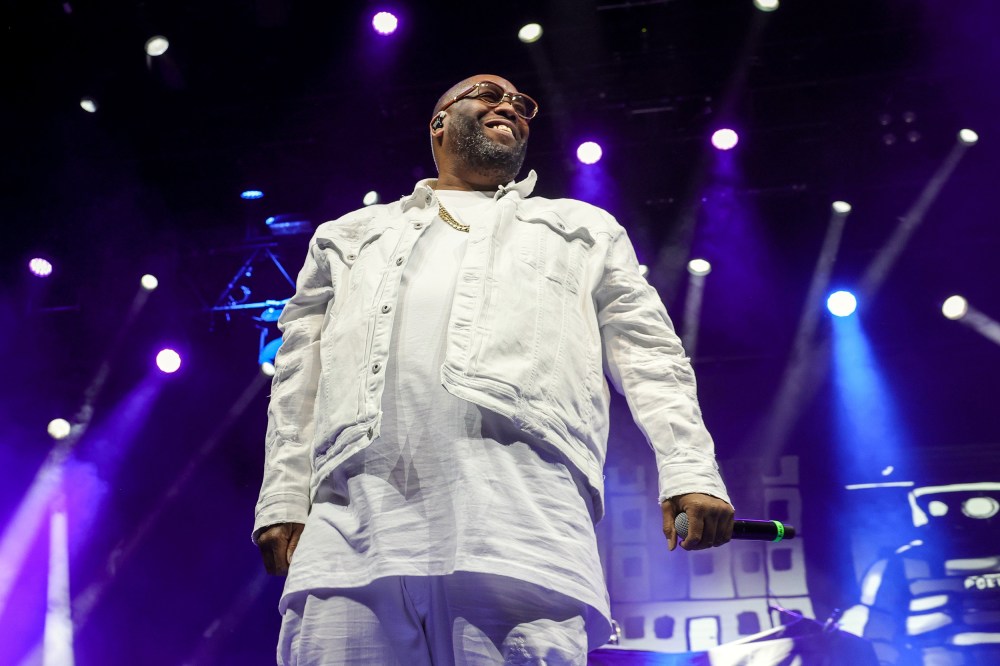Killer Mike’s recognition as an elite wordsmith — he won his first solo Grammy Award this month — is long overdue. But a recent suggestion he made to independent presidential candidate Robert F. Kennedy Jr. that unmarried teenage fathers be made to enroll in trade school shows that the musical artist with clever lyrics, mature content and thoughtful song structure lacks credibility as a political commentator.
The musical artist with clever lyrics, mature content and thoughtful song structure lacks credibility as a political commentator.
Kennedy was recorded having a conversation with Black men at Killer Mike’s Atlanta barbershop. About an hour into the conversation, which can be found on the YouTube page called “Blacks for Kennedy,” Killer Mike (Michael Santiago Render), joins the group to offer Kennedy a bizarre and backward policy proposal.
“For young men and women who get pregnant as teenagers, this is the two-year plan: The first two years are debt-free. You don’t have to pay the government anything back so she doesn’t have to drag him into court and the court can say: ‘You owe us money for investing in your child in food programs and early Head Start programs,’ because, in those two years, he has the option, not the option, the demand and the command to then go to a trade school,” Killer Mike said. “You have to go to a trade school. It incentivizes the United States to do it because we need more tradespeople. We don’t have enough carpenters, we don’t have enough electricians, we don’t have enough people building roads.”
Kennedy doesn’t challenge any of this. Instead, he nods as if he’s having a serious and thoughtful policy discussion. According to the plan Killer Mike shares with Kennedy, after the young man completes trade school, the young parents would be given “incentives” to marry that include assistance on home loans. This, he argued, would strengthen the Black community.
There are many things wrong with this argument. First, boys of all colors and from all educational and financial levels get girls pregnant. Men of all educational and financial levels fail as husbands and fathers. Second, unmarried mothers are not necessarily “dragging” men to court; they’re making sure that there’s a legal agreement in place for the benefit of their children.
Third, suggesting that teenage fathers be made to go to trade school not only makes vocational education seem degrading (when there is beauty in all work) but the suggestion also implies that teenage parents ought not to be ambitious. I attend an Ivy League university, where I have had classes with single mothers, at least one of whom had her baby when she was a teen. A friend at my university is a single father whose daughter was born when he was in high school. He often brings his daughter with him to campus.

Beyond the problems with the particular idea Killer Mike expressed, there’s a bigger, even more disturbing problem to call out. He is continuing a trend of rappers allowing themselves to be used by presidential candidates looking to gain access into majority Black spaces. Kennedy, for his part, is continuing the trend of presidential candidates treating rappers as if they’re policy wonks.
In 2020, rapper Ice Cube, who once received a menacing letter from the FBI after his group N.W.A released “F— tha Police, met with then-president Donald Trump and pitched his platinum plan, which he said would benefit Black churches and Black businesses.
Rapper Kanye West, as he was then known, met with Trump at the White House in 2018 to discuss, according to White House press release, “manufacturing resurgence in America, prison reform, how to prevent gang violence, and what can be done to reduce violence in Chicago.” In 2019, Killer Mike endorsed the presidential campaign of Sen. Bernie Sanders, I-Vt., by saying, “I am here as a proponent for political revolution.” According to Killer Mike, he and Sanders were two “angry radical guys finding common ground.” To be clear, rappers aren’t the only Black celebrities politicians have used in their attempts to boost their reputation with Black voters.
Kanye West, as he was then known, met with Trump at the White House in 2018 to discuss “manufacturing resurgence in America, prison reform, how to prevent gang violence, and what can be done to reduce violence in Chicago.”
From Richard Nixon successfully persuading Jackie Robinson to endorse him to Muhammad Ali endorsing Ronald Reagan, there’s a history of politicians seeking the endorsement of Black celebrities or trumpeting whatever endorsements come.












